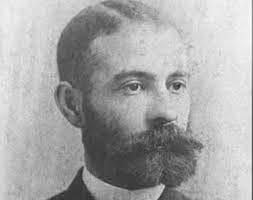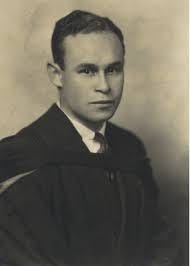Talk about your structural disparities!
According to my best evidence, around 52% of Black doctors are Nigerian immigrants. I’m sorry…let me rephrase. “…77% of black doctors in the U.S.A. are Nigerians...” About 1.69% of Blacks in America are of immediate Nigerian ancestry.
This figure could not be right. I have nothing against Nigerian immigrant doctors. In fact, one of our neighbors across the street was a Nigerian immigrant doctor. He was married to a Latina and had in-laws in Montana or Idaho. We once got together for coffee at Starbucks. I was curious to learn about his childhood but I was more interested in his upbringing than he was. He was an American now and I got it. He had no family stories of grandparents or great great grandparents on American soil. His American life was future-oriented which I understood.
So much for racial affinity, a mysterious life force uniting all people of African descent.
Still, 77% of black doctors in my native land are Nigerian immigrants??? I resisted the assertion but I found corroboration from other sources. https://www.facebook.com/watch/?v=184367332814724 ,
https://twitter.com/africlandpost/status/1111364370695503872?lang=en, https://www.nairaland.com/885316/77-black-doctors-us-nigerians, https://www.tiktok.com/discover/most-black-doctors-are-nigerian, https://www.lipstickalley.com/threads/apparently-77-of-black-doctors-in-the-usa-is-nigerian.4799618/
=========
What are we to make of the domination of the black medical profession by Nigerian immigrants?
First, Blackness as Oppression is a trope. And not a very good trope at that. If black skin color equals oppression writ large in America, why are dark-skinned and unmixed Nigerian immigrants edging out indigenous Black Americans who span the color spectrum from the darkest color to the light, bright and almost white? The typical Nigerian immigrant doctor, like my former neighbor, is zero percent European in ancestry. And yet Black Americans more European in physical features are being outpaced in medical school admissions and the practice of medicine. I can only draw one logical conclusion — dark skin color does not suppress achievement in medicine.
For visuals, here are examples of Nigerian immigrant doctors:
Here are examples of Black American doctors indigenous to the USA for generations:
Second, Nigerian immigrant doctors adapt to Black American culture over time. For example, it appears some become more and more color conscious which makes sense. Everyone is dark-skinned in Nigeria, so no one is aware of skin color. It is like a fish swimming in water and yet unaware of water. It is only when the fish is out of water does the centrality of water become paramount.
Sadly, Nigerian immigrant doctors are falling into the psychological trap of giving away their power to define oneself. Six years ago, the Boston Globe covered the story of too many white pictures on the hallways. “A Nigerian-American first-year medical student was interviewed about the presence of pictures of former deans on the auditorium wall at Harvard Medical School. The former deans happened to be all white (with one exception) and this made the interviewed medical student feel good about removing the portraits and perhaps bad about the difficulty of ‘putting people of color in power.’” https://www.bostonglobe.com/metro/2018/06/13/about-face-hospital-will-disperse-portraits-past-white-male-luminaries-put-focus-diversity/0pICgbpsw7QoHFFJQQEZOJ/story.html This Nigerian-American medical student picked up this high sensitivity to white faces on the wall from Black American Culture and Consciousness. This student would not have cared about the race of pictures on a wall were she still living in Lagos, Nigeria.
Whether one feels good or bad should come from within, not from without.
Acculturation and assimilation into a Black American subculture doesn’t bode well for the children and grandchildren of Nigerian immigrant doctors. See also https://blog.mercy.com/physician-nigerian-couple-black-history-month-profile-springfield/ And I define “Black American subculture” in this context as Blackness being extremely important or very important to one’s sense of self. 24% of Black Americans are non-conformers in this regard but 76% sets the feeling tone of Blackness in America.
I urge scholars and intellectuals to monitor the progress of the children and grandchildren of Nigerian immigrant doctors. Will the descendants ascend into greater heights of achievement or be lulled into lower levels of accomplishment? The slur of Acting White is a powerful suppressant. Time will tell.
Third, I am not a tribalist because I have retired from Blackness. But if I were a race tribalist, I would be embarrassed that Nigerian immigrant doctors are dominating the Black presence in medical schools and the practice of medicine. It’s not about skin color. The average Black American descended from an American family since before 1900 is at least 18% to 22% European. If dark skin color is a suppressant, explain the growing disappearance of fairer-skinned Old American Black families in the medical ranks and the rise of the Nigerian immigrant doctor.
Skin color doesn’t explain what is going on here.
Fourth, culture is the simple answer. Nigerian immigrants bring to the table values and attitudes of enterprise, high aim, ambition, hard work and focus. One doesn’t skate through Organic Chemistry. One perseveres through Organic Chemistry to even have a shot at Medical School. These values and attitudes have no correlation with race per se. These were the values and attitudes I used for engaging life and the larger world in a southern suburb. I would never have attributed a race to these tools for the business of life.
Finally, what are the consequences of choosing medical professionals who look like me? One of the lessons I learned on the tropical island is that skin color and hair texture tells me nothing about the inner person. Your brown or dark skin color tells me nothing about your admiration for cannibals (strange but whatever), your life unburdened by cynical use of slavery, or the freedom to caress the red straight hair of a white toddler because one is…well…curious.
A woke Black American patient may find the Nigerian immigrant doctor comes from a different world. And skin color is not the tie that binds in the modern era. This is all I have to say. And for the record, my first family doctor was southern and white. My beloved doctor for over thirty years who recently retired was Mexican American. It was bedside manner and character that mattered to me, never skin color.
Conclusion: When I grew up in Chester, Virginia in the 1960s and 1970s, all the black people I knew shared the same deep roots in American soil. The only outliers were two male principals, both Jamaican immigrants who found their way to Hickory Hill and Courthouse Road of all places. I recently visited a family member at her elite institution. Only one black student I met self-identified as an unmixed Black American whose ancestors knew America as home before 1900.
Who was this unique black student? This relic from our racial black past? The student was my family member.











Very interesting. I’m with you; I don’t care about skin color or ethnicity. I just want someone who gives me confidence and shows compassion. I’m not sure where my dermatologist is from. He’s dark skinned, tall and has a wonderful smile. He’s always friendly, informative and helpful. I wish they were all like him!
This is extremely inaccurate information and very divisive notice it's just saying it and not given any US government data at all